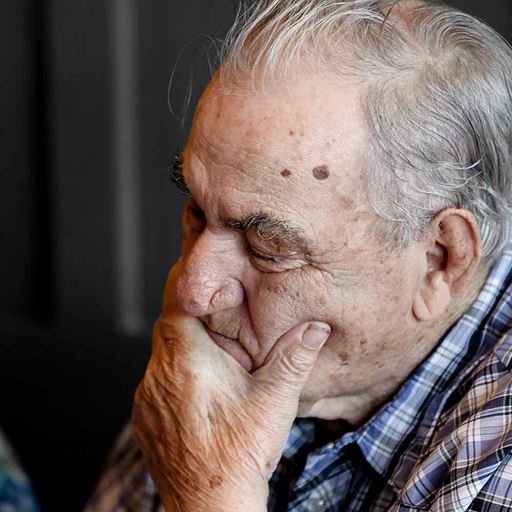Rights experts support frontline COVID-19 care staff
-
Date
Wed 8 Apr 20

A webinar exploring issues around the care of vulnerable people during the coronavirus crisis has helped almost 400 care professionals working at the frontline ensure they are protecting the rights of their patients.
Hosted by the Essex Autonomy Project for the National Mental Capacity Forum, the webinar reached maximum capacity with 500 registrations and an 80% attendance rate.
It was the first of three webinars aiming to support frontline professionals coping with the care of vulnerable people, particularly in cases where decision-making capacity is impaired.
The webinar, for which Professor Wayne Martin, of the School of Philosophy and Art History, and his team provided research support, paid particular attention to the difficult clinical, ethical and human rights challenges unfolding in care homes. It was chaired by Baroness Ilora Finlay who chairs the National Mental Capacity Forum.
Those taking part included social care workers, doctors, psychiatrists, lawyers, researchers, civil servants and those in charge of safeguarding in local authorities from around the UK.
Professor Martin, Director of the Essex Autonomy Project, explained why the webinar series is so vital: “The pandemic presents huge challenges and risks, both for care-recipients and for those who are providing the care.
“These webinars provide a venue for practitioners to check in, share their experiences and the challenges they are facing, solicit expert advice, share good practice, and inform the broader public policy response.
“It is vital that ethical and human rights considerations not be among the casualties of this emergency.”
![Professor Wayne Martin]() "It is vital that ethical and human rights considerations not be among the casualties of this emergency."
"It is vital that ethical and human rights considerations not be among the casualties of this emergency."
Topics discussed included a review of practical advice about infection-control in care homes, an overview of the formal guidance already available, and resources that are being prepared for communicating difficult issues such as illness and death to patients who may have severe cognitive impairments.
Feedback was overwhelmingly positive with delegates commenting that “it was excellent…we are all working in ever-evolving, challenging times and the webinar provided an opportunity to reflect and share good practice and expertise,” and “the content, speakers and ideas were incredibly useful.”
Presenters included members of the House of Lords, a representative from NHS England and a barrister from 39 Essex Chambers.
Topics for the next two webinars, on 28 April and 3 June, is being planned according to some of the issues raised in this first webinar and will respond to developments as they unfold. The 28 April event is called 'COVID-19: Deprivation of Liberty Safeguards (DoLS) and Best Interests'. Register today.
"Certainly a substantial portion of our attention will be devoted to emerging legal issues, including those that pertain to the recently passed Coronavirus Act and how it will be applied in care home settings,” explained Professor Martin.
Data about what is happening at the frontline of care generated by the events will be analysed with assistance from two students on the Undergraduate Research Opportunities Programme.
)
.jpg?mh=500&mw=500&hash=6568B6C9CCF5290A596BEF6678B6AD0E)



